40 easy ways to save money at home – lower the cost of running your household
Our team of home experts are here to help you lower your cost of living without making big compromises

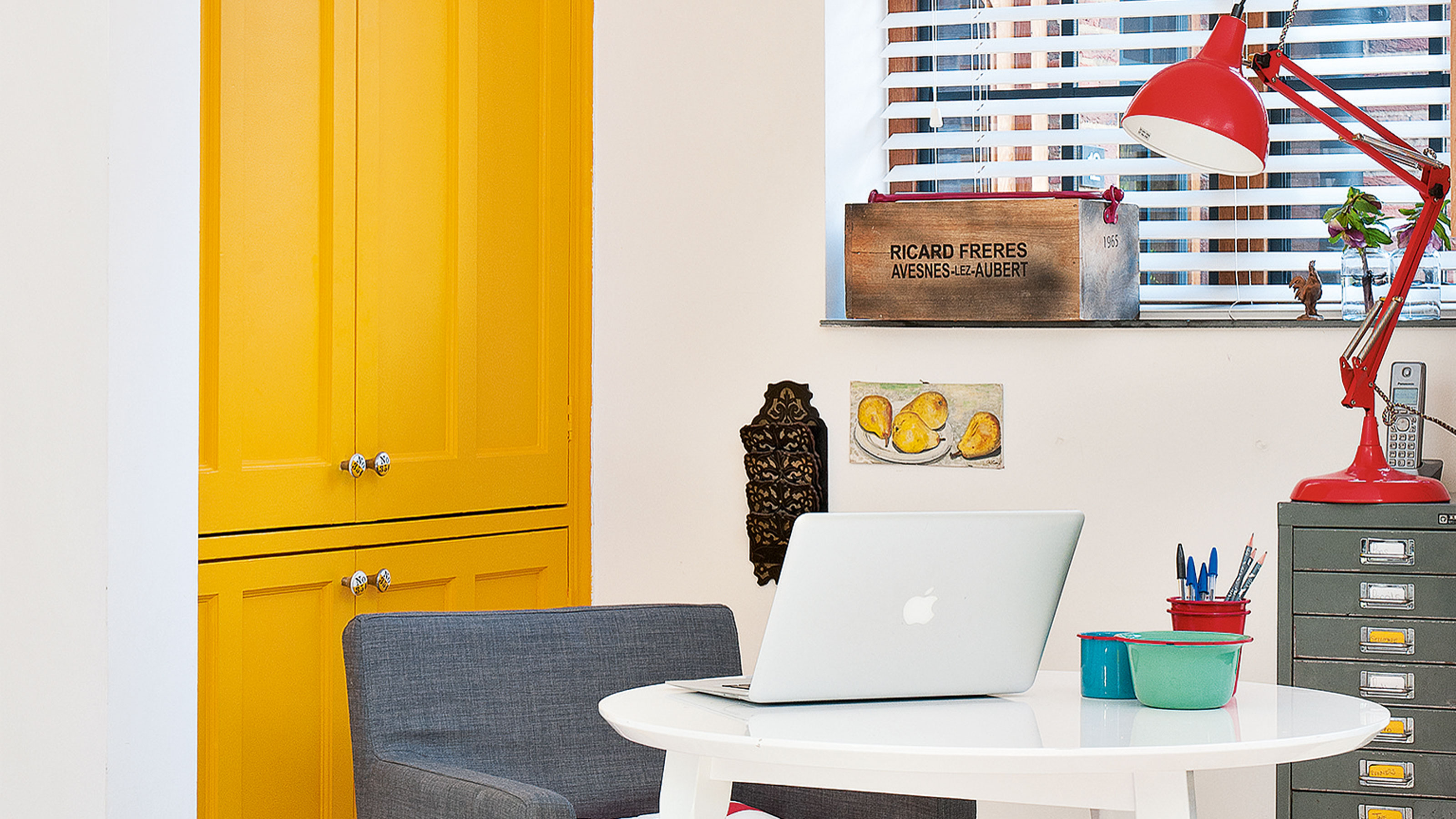
Sign up to our newsletter for style inspiration, real homes, project and garden advice and shopping know-how
You are now subscribed
Your newsletter sign-up was successful
With energy prices and National Insurance contributions ramping up, it's never been more important to find ways to save money at home. Mounting bills can be intimidating. But there's a lot of truth in the old adage, 'save the pennies and the pounds will look after themselves'. If you follow even half the tips we've listed below, you could soon find yourself recouping the costs of service price hikes.
Our tips are all about saving money at home, so we've dodged the likes of ditching gym memberships and cheaper days out. And we have a whole other article on how to save energy at home – although we've thrown in a few here for good measure. But guaranteed, these tips and tricks will cut the cost of household basics... and not-so-basics. They've come from both the Ideal Home team and more brilliant interiors journalists, so there's a wide range of inspo to be had!
Got any tips we've missed? Email us at ideal_home@futurenet.com.
40 easy ways to save money at home
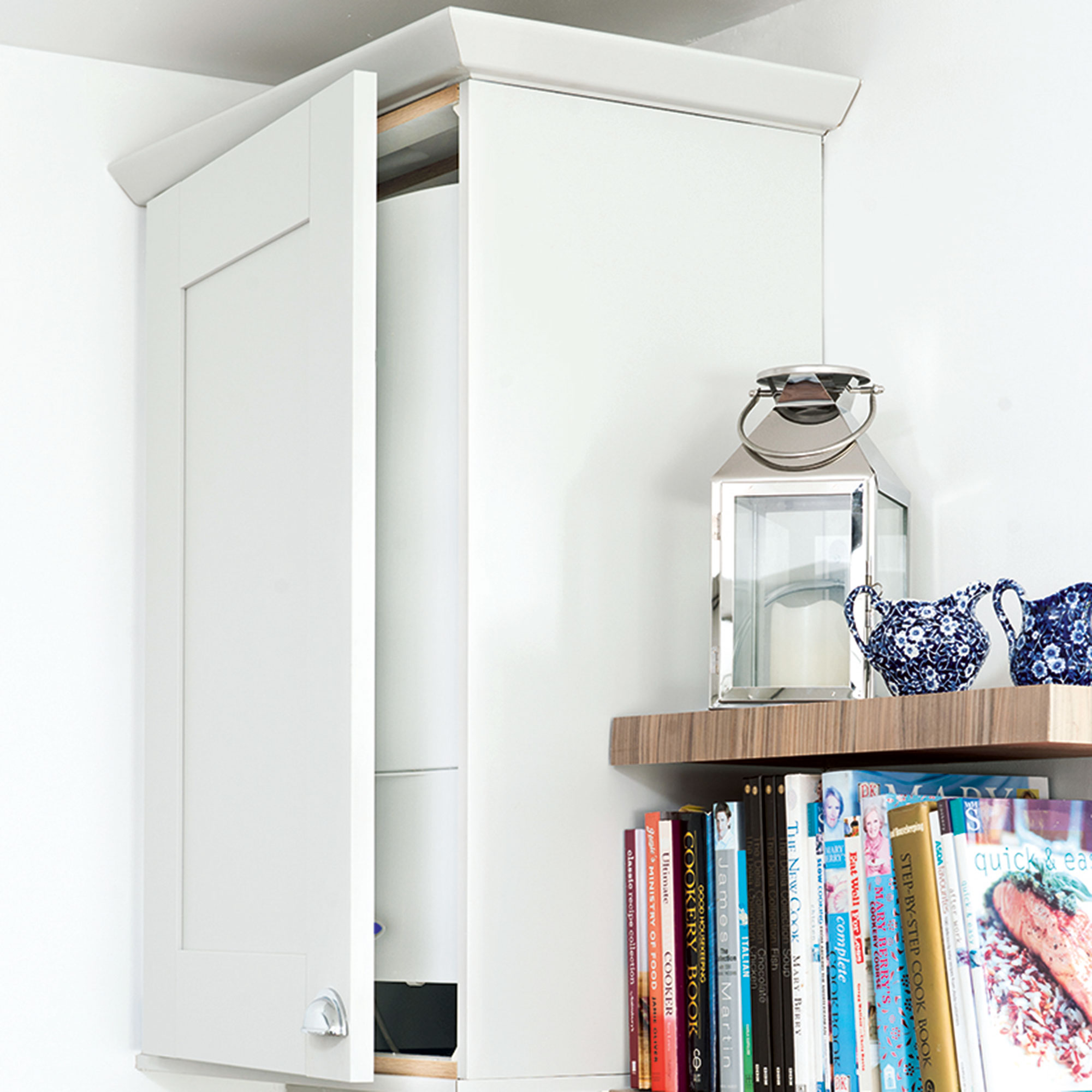
1. Take control of your hot water
‘Actively managing your boiler through controls can make a big difference,’ says Jason Orme, Managing Director, Homebuilding and Renovating. ‘Most people concentrate on space heating, but controlling your hot water demand (DHW) can really help, too. Rather than having the hot water demand on constantly – which means it fires up the boiler every time you run a hot water tap – popping it on a timer to come on at intervals can be much more effective.'
'Firing up boilers for short amounts of time regularly is not only a great way to use energy, but a good way to make sure your boiler needs less maintenance. For most people with typical hot water cylinders, you can heat it for an hour early in the morning and an hour later in the afternoon.'
'Also, heat your DHW to a lower temperature. Most default settings on boilers heat DHW to over 70˚C, which means having to mix the hot water with cold so you don’t scald. Something like 35-40˚c is the temperature of a very hot shower, so avoid the mixing down at the tap and reduce your energy bills even further. You’ll need to heat the cylinder to 60˚c once a week to kill off bacteria, such as Legionnaire’s.
You don't need a fancy smart thermostat to take better control of your boiler – although smart heating does make life easier. There should be a timer and settings built into the unit itself.
Sign up to our newsletter for style inspiration, real homes, project and garden advice and shopping know-how
2. Play chicken with online stores
‘This doesn’t work on every site, but it’s definitely worth a shot,’ says Ideal Home's Content Editor, Thea Babington-Stitt. ‘If you’re considering buying an item online but it’s a little too spenny, add it to the bag but don’t complete the purchase. Smaller sites (because, no, this won’t work with Amazon or ASOS) will often see the intent to purchase. They'll then send you a discount code in order to nudge you over the checkout line.’
Ideal Home's Amy Cutmore can literally 'vouch' for this – excuse the pun. She was in the market for an essential protective phone case, and popped her choice in a basket but didn't complete the transaction. Because she signed up to the retailer newsletter, two hours later, a 20% discount code dropped into her inbox. £5 off for nothing? Yes, please!
Another plus of leaving the item in the basket, unpurchased, is that it gives you time to really consider your decision. That variety pack of scented candles might not seem quite so 'essential' the next day.
And if a discount code doesn't drop into your inbox? Try discount code hunting online before you buy. Websites like MyVoucherCodes have money-off codes from all the big stores and say that they hand-test their codes and offers daily to check that they’re working.
3. Use a plug-in time switch
‘Does your Google Home Mini really need to be on all night, waiting for the commands no one is around to give?,’ asks Pip Rich, Editor at Livingetc. ‘Experts suggest that there are an average of 27 things in your home on standby at any given moment. If you put as many of them as possible on a time switch you can stop them draining energy overnight. They may only be using a little, but it all adds up.’
The Defender 24 Hour Segment Timer Switch is amongst the most highly-rated on Amazon. It's easy to use and it can be set in 15-minute segments, so that you can time it to turn off whilst you sleep or during a time in which you know you'll be out of the house.
4. Be a 'friendly' complainer
‘Insurance coming up for renewal? Do your research and check out all the latest savings on comparison sites such as GoCompare,’ says Christina Chrysostmou, Content Editor at Real Homes. ‘Then have an amicable chat with your provider and mention the lower, like-for-like prices you've seen. Companies want to retain existing customers and may be able to price match or beat the competition's offer.’
The same goes for broadband and TV subscriptions, phone suppliers, breakdown cover and more.
Right now, the best and most affordable broadband deal that we've seen is on Vodafone. Pay just £22 each month for 22 months and you'll get a 100Mbps thanks to their Superfast 100 package.
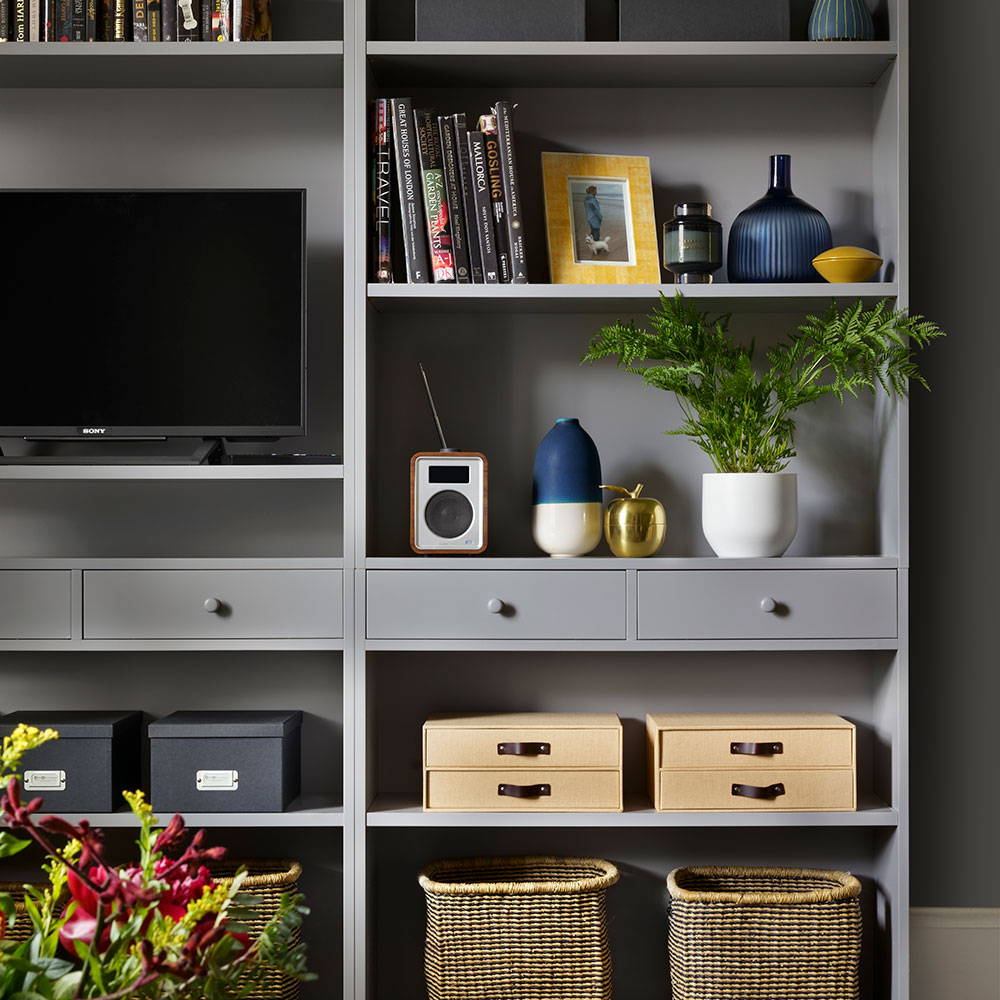
5. Rotate Netflix, Amazon Prime, Disney Plus, Now TV and other subscription services
Most TV and movie streaming services available are on rolling contracts which can be cancelled at any time. 'So why not rotate them every couple of months,’ suggests Teresa Conway. ‘There’s plenty of crossover on each platform and it forces you to explore the depths of each one. After all, there are only so many box sets you can watch at any one time!’
Here's a quick glance at the most popular streaming services, their prices and their free trial offer.
Amazon Prime Video: 30-day free trial, then £7.99/mongh
Netflix: From £6.99/month
Disney+: £7.99/month or £79.90/year with 15% saving
Now TV: From £4.99/month
6. Make your own cleaning products
‘Why pay a premium for ready-bottled cleaning products when you can make your own with the stuff at the back of your pantry,’ says Real Homes Editor, Ellen Finch. 'You’ll also be helping to save the planet (as well as your wallet) along the way. You’ve probably heard people touting the miracles of vinegar, bicarbonate of soda and good old-fashioned soap before – so take this as a sign to give it a go.' For example, we've got some great lemon cleaning hacks that are toxin-free and totally genius.
Top tip: If you do make this a long-term habit, invest in some decent amber-tinted glass bottles from Amazon, which offer more protection against light damage than clear.
7. Buy in bulk
‘Buy larger sizes of things you use regularly – be it rice and pasta, cleaning products (bonus if they’re refillable packs), or hand soap,’ suggests Real Homes Editor, Ellen Finch. 'Though obviously, only bulk-buy items that won’t go past their expiration date before you use them up.'
One thing we love to buy in bulk (and that won't expire) is toilet paper. Look closely at the 'cost per 100 sheets' as printed in the small print on most supermarket price labels, and you can see clearly how much more it costs to buy a four-roll pack over something bigger. Sainsbury's Super Soft Toilet Tissue costs 22p per 100 sheets when you buy a four-roll pack, but only 14p per 100 sheets when you buy a 24-roll pack. That's a 36 per cent saving.
8. Upcycle, upcycle, upcycle
We love a good garden upcycling idea here at Ideal Home. There are so many things you can do with some leftover paint and a bit of imagination and they won't cost you a bean, runner or otherwise. Turn used tin cans into herb planters by sanding the sharp edges, drilling a few holes through the bottom and painting them bright colours.
Almost anything can become a garden planter – be it a chipped ceramic sink, or an old wooden drawer from a worn-out chest. Old step ladders and cot bases make great plant stands, and leftover bricks can even be used to form a garden path.
9. Buy glasses and other day-to-day kitchenware from charity shops
'I've got a confession to make,' says Amy Cutmore. 'I'm hugely accident prone when it comes to glasses, so I can never keep a whole set intact for more than a month. For that reason, I buy all my glasses in charity shops. You can’t be too fussy about having an even number as they usually come in three or fives. But if you are as clumsy as me, it doesn't really matter. And dinner guests will certainly be less nervous about enjoying a second glass of fizz.
'In fact, arranged properly, an eclectic mix of glassware can look just as good as an identical set. You could always use glass paint and a dishwasher-safe coating to personalise mismatched stemware with a repeating pattern of your own choosing. Or stick to glasses of one striking colour, such as green, blue or pink. It will still be far cheaper than buying new.'
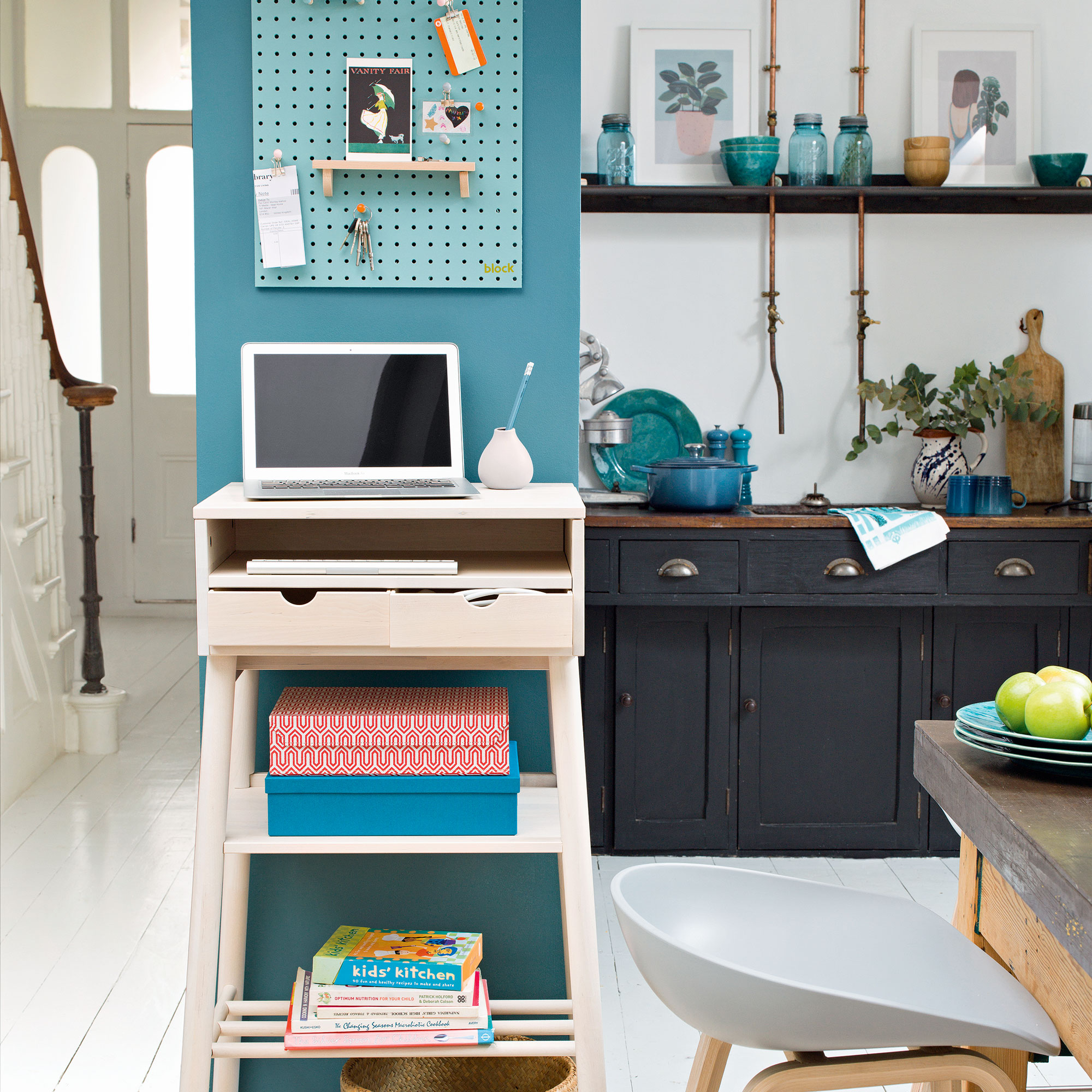
10. Use the incognito browser on your phone, tablet or laptop
‘Furniture shops, phone providers, fashion retailers, airlines, hotel sites and a plethora of other companies use cookies to track your online browsing,’ says Thea Babington-Stitt. ‘Have you ever looked at the price of a flight, found a bargain and then realised the price has jacked up when you log back on to book? Yep, that’s the cookies.'
'Check out your bookings using your browser's incognito modes to automatically delete your browser history after each session, saving you from the additional costs the brands add on knowing you’re interested.’
In Chrome, open a new incognito window under the 'file' dropdown on a laptop. Or press the 'three dots' on an Android phone's Chrome browser and select 'New Incognito tab'. This will also stop those pesky ads 'reminding' you of things you've browsed and been tempted to buy.
11. Love gardening? Propagate perennials instead of buying annual plants
‘You’ll be surprised by how many plants advertised as bedding annuals are, in fact, perennials. Pelargoniums are a great example of this,’ says Anna Cottrell Real Homes. ‘You can propagate and regrow these flowering plants for many years, provided you take cuttings and protect them from frost. The same goes for herbaceous perennials such as lavender and rosemary. You really don’t have to spend money on plants to make your garden look great.’
12. Wash laundry on eco, on a lower temperature
‘A lower temperature uses less energy. And energy rates are cheaper during the night, too, which are charged at off peak rates,’ says Jennifer Oksien, Appliance Editor. 'If you have a timer delay function, set this to finish when day breaks so the laundry is ready to hang up to dry. I swear that a longer wash cycle makes the laundry smell even fresher, too!’
13. Take advantage of cheaper energy at night
‘Take advantage of 'off peak electricity' by putting a tumble dryer on before you go to bed,’ adds Alison Walter, Head of Art Operations. ‘Off-peak times vary slightly depending on the supplier, but they are usually between 10pm and 8am. This is when the least energy is taken from the grid and so energy suppliers can afford to offer cheaper prices.’
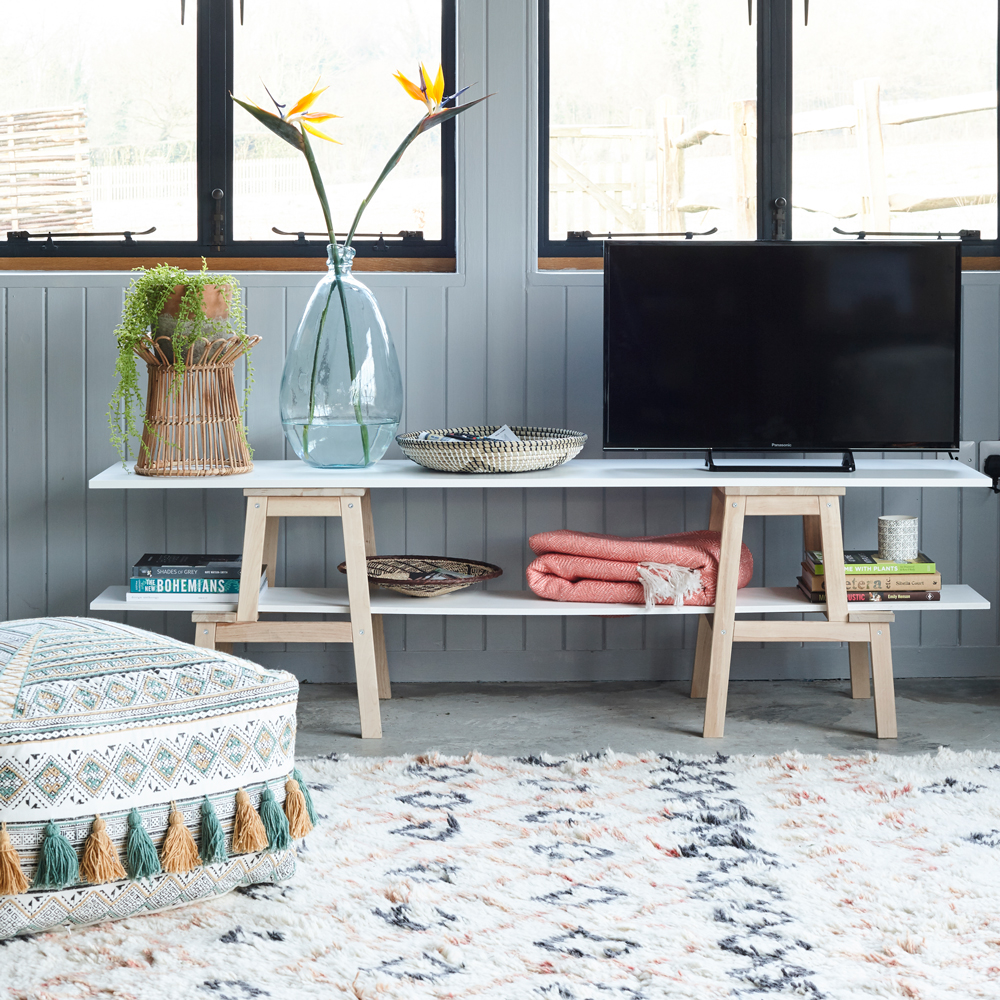
14. Get new furniture for free
‘Online marketplaces are great places to get cheap and, sometimes even free, furniture,’ says Jack Woodfield, Content Editor at Homebuilding and Renovating. ‘This can be invaluable if you’re decorating on a budget, setting up in a flat or university accommodation, or taking on an upcycling project. Some owners are so keen to free up space and clear out old furniture or appliances that they’ll slash asking prices right down if you know how to haggle.’
Amy Cutmore agrees. 'I've just picked up a Next wrought-iron bed that's still in their current range, having spotted it on Facebook Marketplace,' she says. 'I paid £50... it retails at £500.'
15. List your big ticket purchases for the year then research the cheapest times to buy
‘If you know your washing machine is starting to struggle, or your mattress is giving you woe, take note and keep a list of items in the home that will likely need replacing in the next 12 months,’ advises Lindsey Davis, Editor at Real Homes. ‘Then, take to Google to research the cheapest time to buy. For example, mattresses are often cheapest in April or May and lawn mowers cost the least in February, when they are in lower demand.'
'Doing this gives you time to research the best products, too. Also mark the date of the main sale events of the year like Black Friday in November and Amazon Prime Day (usually mid summer). That way, if you do get caught out by a broken appliance or last minute furniture need, you can see how long you might have to wait – and if you can – to bag a bargain.’
16. Use long-lasting energy efficient lighting
‘While the upfront cost of replacing your light bulbs with LEDs is more costly per unit, traditional incandescent bulbs cost about 5x as much to operate and burn out much more quickly,’ says Ecommerce Editor Jaclyn Turner. ‘You also have to replace them more often, as LED bulbs can last up to 10 years.'
'You could even invest in some colour-changing smart lighting, too, for lights on demand. These give you the ability to time lighting to your arrival home, or switch it off if you accidentally leave it on.’
The TP-Link Tapo Smart Bulb from Amazon is among our favourite, mostly because it's so easy to set up with no hub required, and also because these bulbs are dimmable and you can connect them with your Amazon or Google device to control your lights with your voice.
17. Have two no-spend days a week
Perhaps the most obvious way to save money at home is to not spend a single bean. ‘Even buying little things, like a daily coffee, adds up,’ says Deputy Editor at Livingetc, Busola Evans. ‘I try to have two days a week when I spend absolutely nothing. Walk or grab a lift if you need to get anywhere, prepare homemade meals and snacks and ban yourself from the shops – including the online variety – to avoid temptation.'
'Having no-spend days will help you become more aware of unnecessary purchases on the other days.’
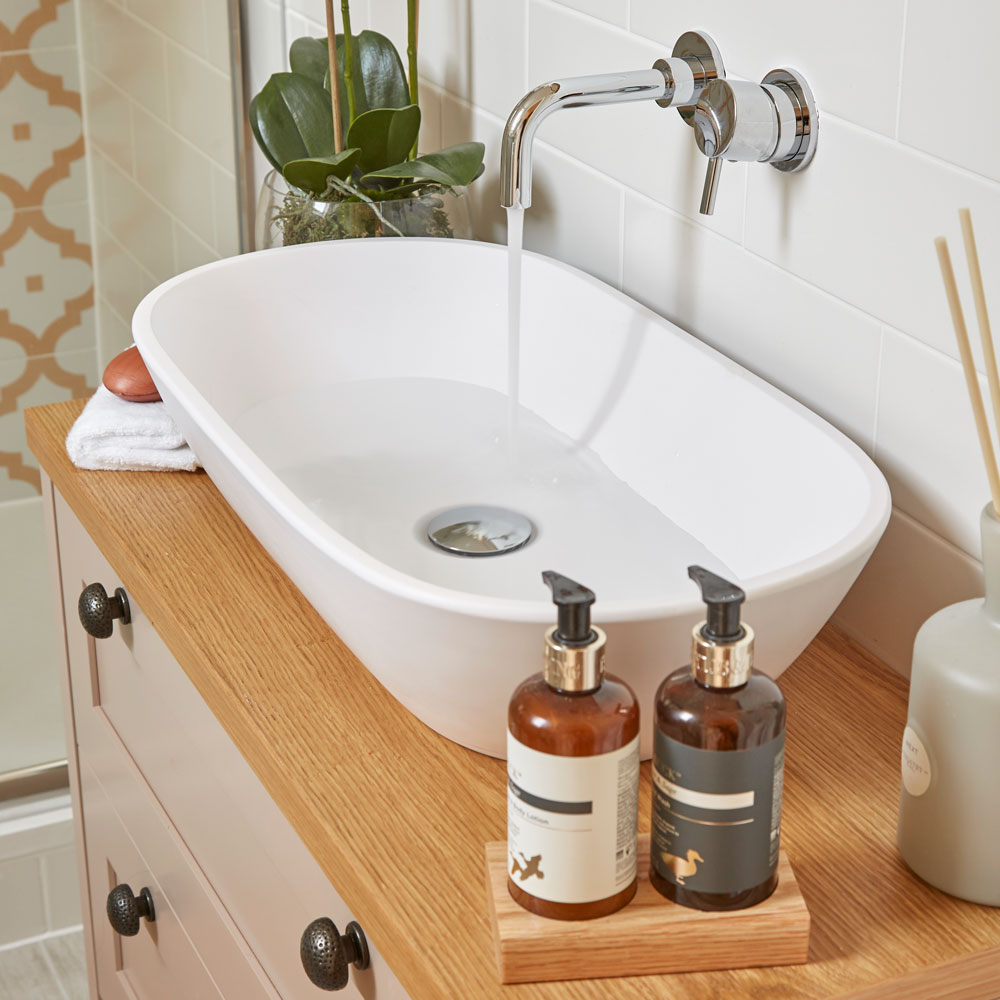
18. Eke out skin products
‘When you are coming to the end of your face cream, or body lotion, and think you have squeezed all of it out, think again,’ says Senior Sub Editor Catherine Law. ‘Take a pair of nail scissors and carefully cut the bottom off the tube or bottle – or the top, whichever is easiest.
'You will be amazed at how much cream is left inside. In my experience, you will get to use at least another two week’s worth of product.'
Otherwise, you can buy a tube squeezer from Amazon to use to get every last drop out of your toothpaste, cleanser, foundation and more.
19. Time-share high-cost, low-use items
‘With family or close friends, split the cost of things that are expensive but are used infrequently, says Matt Gibbs. ‘Gutter cleaners, pressure washers, travel cots, carpet cleaners etc are all expensive buys and probably only get a couple of outings every year. Split the cost with someone nearby (to minimise mileage) and you can all benefit while keeping your investment costs much lower.'
20. Or join a local tool share scheme
Why pay out for power tools and equipment you may only use a few times a year? ‘Many local communities (check out your local Facebook groups and the Nextdoor or Good Neighbour apps) have set up tool-share schemes, or there are websites such as SpareToolz, LocalTools and FriendWithA,’ says Country Homes & Interiors Editor Andrea Childs. ‘Whatever you need – a lawn mower, power drill, wallpaper stripper – you’ll be able to borrow it for just a small membership fee.’
21. Shopping for branded furniture? Have a slice of John Pye
‘The online auction company, John Pye, is an endless source of fascination in our house,’ says Jason Orme. ‘It sells all sorts of ex-display and return furniture, homewares, appliances and more from branded retailers such as Made, Swoon, John Lewis and so on (as well as loads of other things such as electricals). You do have to be a bit careful – we have picked up the occasional wonky-legged table. But the prices tend to end up at around a third of the usual retail cost.'
22. Switch your mobile to SIM only
When looking at your mobile phone contract, set a reminder in your phone a month before your contract ends and switch to SIM only. You can ask your service provider to check how much data you use every month and go for a SIM card with a similar offering. Don't get trapped into paying a premium for an unlimited, uncapped, all-singing-all-dancing contract.

23. Create a bespoke headboard using leftover paint
‘Giving your home a refresh can quickly become pricey, so opt for more cost-effective ways to transform your space,’ says Ideal Home Content Editor Holly Walsh. ‘A new “headboard” for your bedroom can easily be achieved by painting a large rectangle or semi-circle of colour on the wall behind your bed.'
'For your DIY headboard, draw the outline with a pencil, starting at the base of the wall (or top of the skirting board) on one side of your bed. For a semi circle, sweep your arm up the wall and the back down to the base of the wall on the other side of your bed. Or mask off a rectangle with a spirit level and tape.'
'Use a small brush to carefully paint along the edge, using a bigger brush or roller to fill the rest of the shape.’
24. Turn off electricals on standby
Unless you switch off the appliance at the plug, it'll continue to drain energy,’ says Jen Oksien, Appliances Editor at Real Homes. 'The Energy Saving Trust reports that appliances on standby consume 9-16% of electricity consumed in homes, which will make a big dent in the monthly and yearly energy bills.'
'Appliances left on standby are not only eating up more energy, but they are also wasting heat and light.'
25. Don't assume ordering online is always better
‘If you're finding it hard to drop takeaways completely, put in your order with the restaurant directly rather than using an app delivery service. According to recent research, it can be cheaper,’ says Chief Sub Editor Jennifer Spaeth.
Other booking apps for parking and trains also add a surcharge, while shopping in person can also be cheaper when it comes to furniture. Lots of stores will have a 'bargain corner' where you can pick up a cut-price cabinet or slashed-in-price sofa. These are often end-of-line items and customer returns and may still be in perfect condition, yet retailers find it too much of a logistical faff to put them on the web.
26. Pay insurances up front, not monthly
‘Paying for car insurance and home insurance for six months or a year instead of month by month means you will usually get a discount from your provider,’ says Jennifer Spaeth.
Editor-in-Chief Amy Cutmore recently tried this trick on her joint buildings and contents insurance package and saved £200. But of course, make sure this is affordable. Sticking the whole bill on your credit card, and then only paying monthly, could cost you more.
27. Hone your DIY skills
‘If lack of technique (and confidence) is holding you back from what should be easy fixes around the house, then get smarter at DIY,’ suggests Country Homes & Interiors Editor Andrea Childs. To start, ask family and friends if they can show you the ropes with a drill, a spanner, or a wallpaper brush.
If you still aren't confident, ‘Local adult education classes are a good place to start,' says Andrea. 'You can sign up for short courses in everything from plumbing to wallpapering at college. Or learn the tricks of the trade from experts offering weekend masterclasses.'
'If you want to take it to the next level, see if there’s a ‘fab lab’ near you. Fabrication laboratories are kitted out with everything from 3D printers to laser cutters and precision tools (and training to use them) so you can make your own unique furniture or design pieces.’ Visit the Fab Foundation for more info.
Yes, you may pay up front. But you could end up saving hundreds if not thousands of pounds in the long term. You could even use your skills to make some extra pocket money through sites like Task Rabbit.
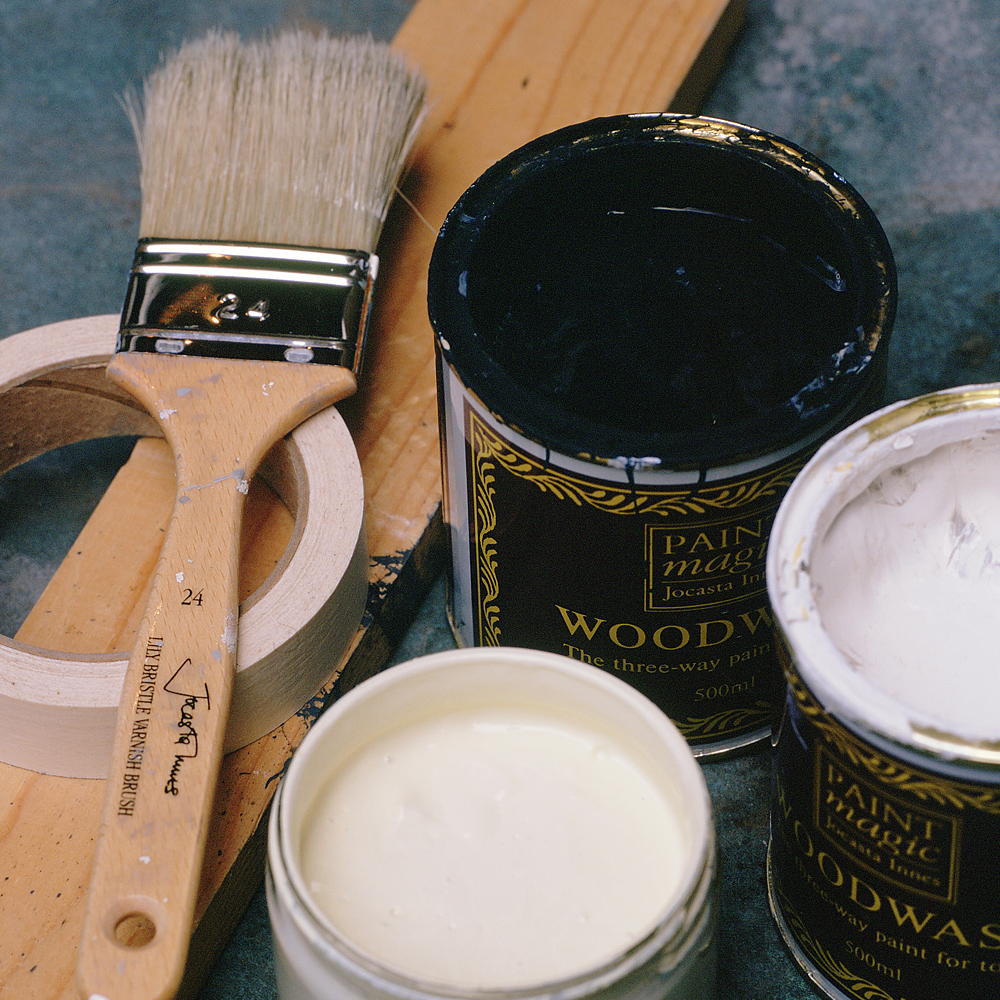
28. Only heat the rooms you’re using
‘Even if you turn down your thermostat and reduce the number of hours your heating is switched on, you’ll still burn through money if you’re heating rooms that aren’t being used,’ says Editor Andrea Childs. ‘Invest in individual thermostat valves for each radiator and turn off the ones that sit in little-used rooms. You can always turn it back on if you suddenly decide you need to heat up the conservatory or guest room in the loft’.
You can buy individual thermostatic valves online for less than a fiver. This one, the Milano Chrome Thermostatic Valve Head from Best Heating, is cheap, easy to install and it looks great.
29. Insulate your loft hatch
‘Insulating your loft will improve the thermal performance of your home, helping to minimise heat loss through the roof and consequently aiding to reduce energy bills,’ says Homebuilding and Renovating Editor, Claire Lloyd. ‘But don’t forget about insulating your loft hatch Insulating this often overlooked area won’t save you a significant amount on your fuel bills, but it will improve thermal comfort in the rooms and/or landing below. It prevents draughts and warm air being pulled into the loft space.
30. Bid carefully in online auctions
eBay and other online auction sites can be a rich source of bargains if you’re looking to refresh or update your home. Also, conversely, a great way to generate cash for unwanted items or materials left over from a home improvement project. ‘However, buying in this way can be a false economy if you’re not careful,’ says Homebuilding and Renovating Editor, Claire Lloyd.
'If you’re updating a bathroom, cloakroom or kitchen, look out for brands synonymous with quality, such as Bristan, and avoid cheap unbranded brassware that might not last the distance. Also factor in delivery. If a bulky item necessitates the need to hire a van or a considerable drive, then you might want to reconsider the purchase or the price you pay for the item.'

31. Draught proofing is a must
If you haven’t done so already, take a trip to your local DIY shop or builders’ merchant and pick up some draught proofing tape,’ says Claire Lloyd. ‘Draught proofing windows, doors, the gaps between skirting boards and floors and so forth, or adding a draught excluder to a letterbox, are relatively simple, inexpensive DIY jobs which can not only shave a few pounds off your energy bill, but help improve the thermal comfort of your home.’
Go for a twin door draught excluder like this Viseman one from Amazon to prevent draughts in two rooms at once. The Comfy Nights draught excluder is another Amazon pick, but this one is great for sealing your windows.
32. Take advantage of money-off deals... and don't be loyal!
‘Coupons are in favour!, says Homebuilding and Renovating Editor, Claire Lloyd. ‘Supermarkets, online recipe box companies and food delivery services are constantly vying for new customers with money-off deals and £s off your first – or first few – orders. It’s a great way to save on your grocery bill while trialling out who you want to use in future.
This applies when ordering furniture, materials for a home improvement project and so on online – many companies offer 5-10% off to new customers or on signing up to a newsletter, so make sure you take advantage before making your first purchase.’
33. Colour match your paint
‘When it comes to designer paint, what you’re often paying for isn’t just the label, but also a very particular colour that’s been formulated by experts,’ says Livingetc Content Editor Hugh Metcalf. ‘Seek out colour-matching services that have popular paint colours stored in their database. You could save a small fortune across your projects.’
34. Get seeds from your veg
‘You don’t need to buy vegetable seeds in packets which can cost around £2.50 or more,’ says Gardeningetc Deputy Editor, Teresa Conway. ‘Scoop out the fleshy seeds from tomatoes and soak them in water to get rid of pulp. These can then be used to plant and grow veg from.’
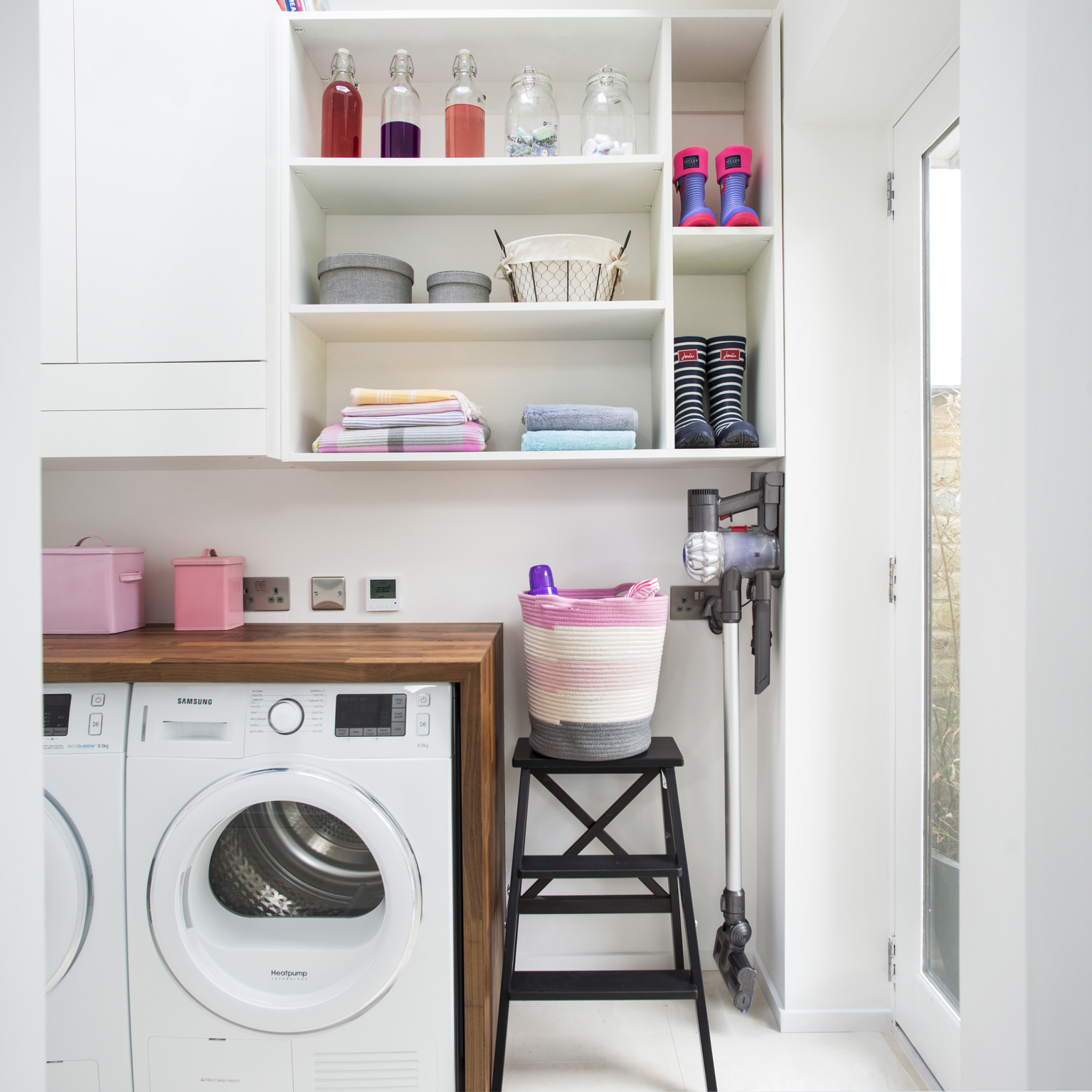
35. Go for an extra spin on your washing machine
If you use a tumble dryer, set the extra spin setting on the washing machine so it wrings out your washing out a little more. Or if your clothes can handle it, use a higher spin setting from the off. The tumble dryer then doesn’t need to work so hard to get the laundry ‘hanger dry’, or you don't need to whack up your heating quite so high to dry laundry indoors.
36. Question whether you really need to invest in a tumble dryer
‘In my experience I’ve only ever used a tumble dryer when there’s one there,’ says Teresa Conway. ‘If there isn’t one, you don’t even really notice. They take up space, eat up energy and crease clothing. A good clothes airer or two is all that’s needed.’ Otherwise, you could benefit from buying a heated clothes airer.
37. Don’t use a hair dryer
‘With the cost of energy going up these are real eaters of energy,’ says Teresa Conway. ‘Wash your hair the night before, add some serum to wet hair if you need it and leave it to dry overnight. This is a great way to save money at home, as well as time.’
38. Read insurance contracts from the bottom up
Rather than check your policy from the top down, read it from the bottom up before you agree to the terms. 'Most of the juicy bits can be found at the bottom,' says Christina Chrysostomou. 'These include clauses and titbits of info that you might think are too boring to read, but may affect your ability to make a claim, or reduce the amount of money you're expecting to receive. This small sacrifice can save you a lot of time, and potentially money in the future.'
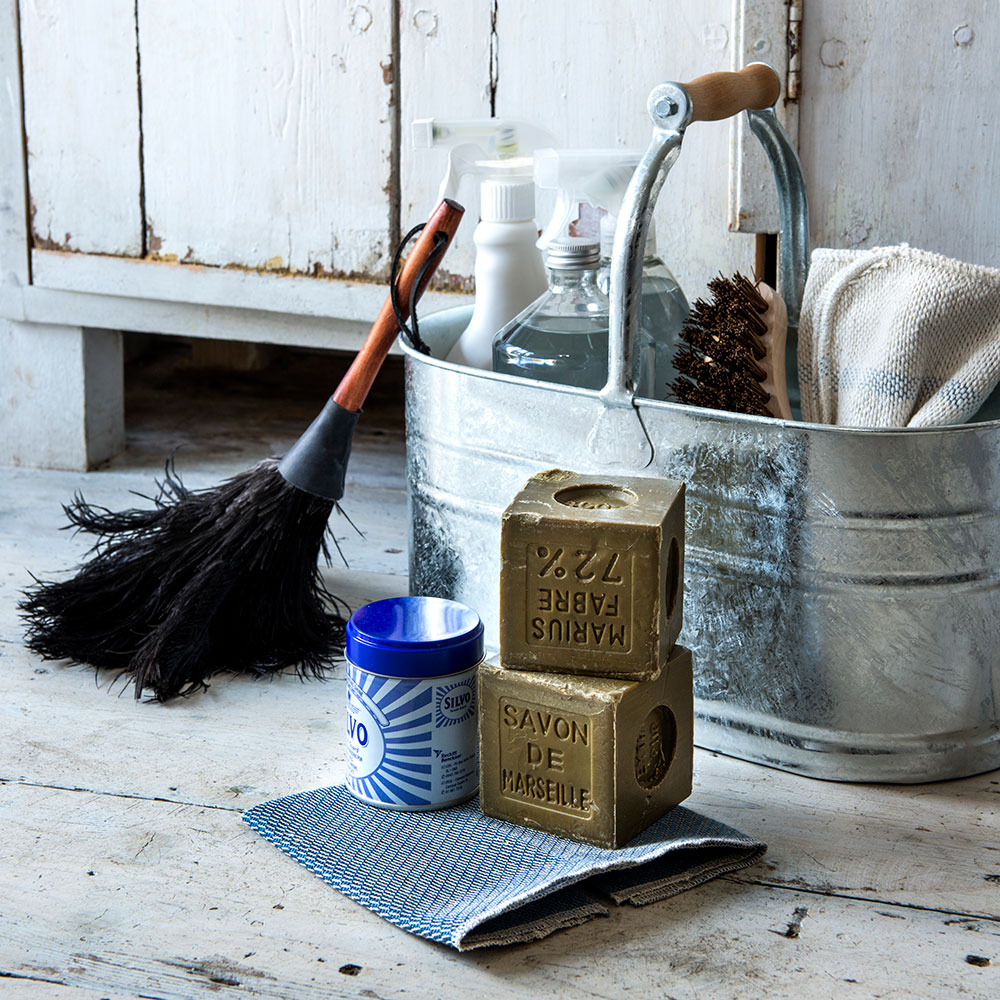
39. Turn old t-shirts into dusters or cleaning rags
‘As an obsessive white T-shirt wearer, I’ve never bought dusters,’ says Teresa Conway. ‘Every time I stain one to the extent I can't really wear it any more, I cut it up and use it as a washable duster. I find them very durable for cleaning.’
40. Do a daily fridge audit
We've all been there. Opened the fridge only to fine some out of date chicken or mouldy veg. But it needn't be that way. If you make a mental note to do a 'fridge audit' every evening when you are grabbing the ingredients for dinner, you can save food from being wasted.
Start by checking you're storing things in the right way. Put salad and veg in the veg drawer – it's designed to look after them better than other parts of the fridge, by controlling humidity – and it really works! It's the same with meat and your fridge's deli compartment.
'Herbs like coriander and dill should be stored in the fridge like a bouquet of flowers,' says Christina Chrisostomou. 'Snip off stems and place in a glass jar with an inch of water. They'll last up to three weeks this way, if you change the water regularly. Incidentally, it's best to buy basil and mint as potted plants, to be kept at room temp, in a light room but away from direct sun.'
Next, check use-by dates and pop anything you can into the freezer. It's not just the obvious meat and ready meals that can be frozen – you can freeze cakes, soups, stews, cooked pasta, bread, even grated cheese and peeled bananas! Oh, and our personal favourite – leftover wine. Pop it in ice cube trays and then, when you're next making a casserole or risotto, you can add them directly to the mix!
Looking for more money-saving tips? We've rounded up the best energy-saving products to buy for your home, to save money on your bills forever.

Amy Cutmore is an experienced interiors editor and writer, who has worked on titles including Ideal Home, Homes & Gardens, LivingEtc, Real Homes, GardeningEtc, Top Ten Reviews and Country Life. And she's a winner of the PPA's Digital Content Leader of the Year. A homes journalist for two decades, she has a strong background in technology and appliances, and has a small portfolio of rental properties, so can offer advice to renters and rentees, alike.